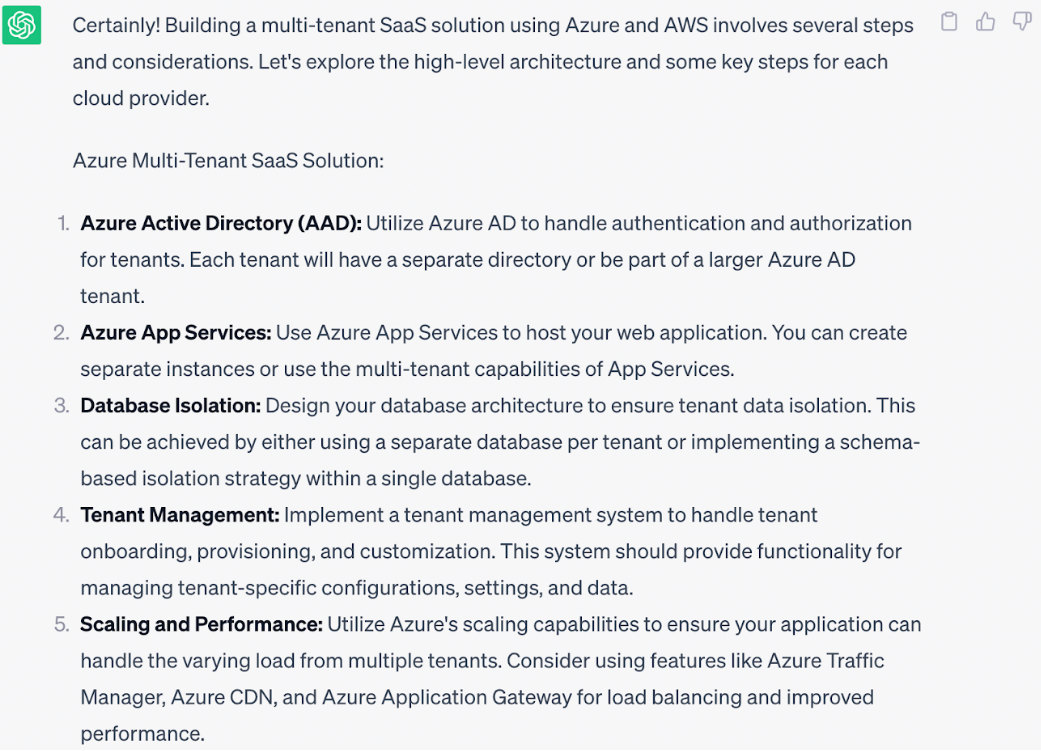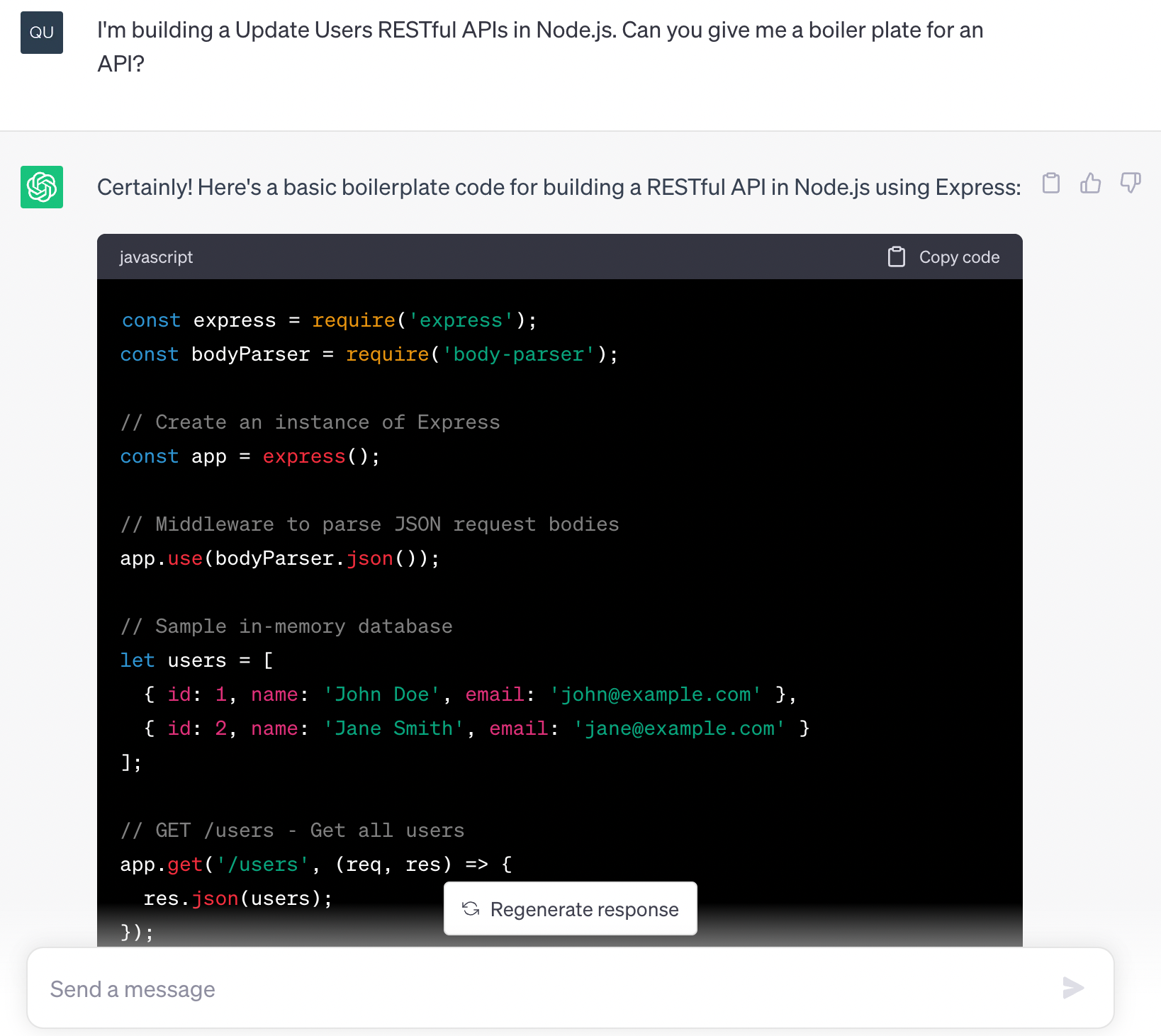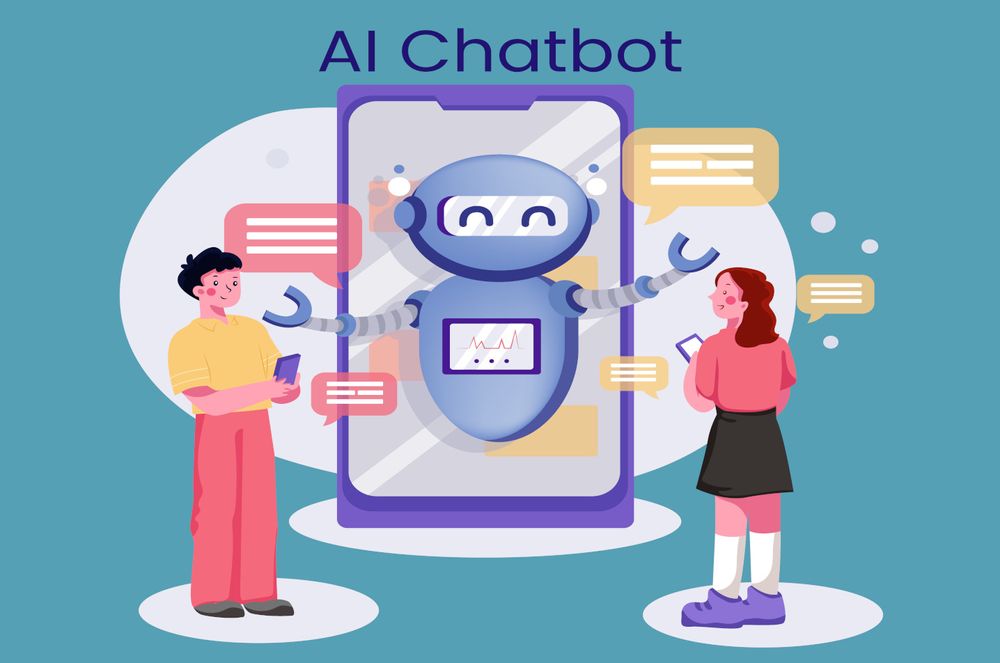ChatGPT is a powerful chatbot that can hold natural conversations and provide human-like responses. In addition, its ability to understand and solve code-related problems makes it an ideal tool for software developers. Developers can save time and effort by avoiding repetitive tasks, solving everyday design issues, and understanding complex code using ChatGPT as a pair programmer or a code reviewer. In this blog, I will discuss some of the benefits and challenges of using ChatGPT in software development and share some tips and best practices for integrating it into your development workflow.
Benefits of ChatGPT in Software Development
Software development is a long process and different stages are involved, some of them are time-consuming and some of them need specialized skills. As an AI-powered tool, ChatGPT can automate several repetitive tasks and makes the development process easier. Some of the benefits of using ChatGPT in software development are:
- Comparing tech stacks: Choosing the right tech stack is a challenge when starting a new project. Most of the time, you must evaluate languages, adaptability, long-term support, and limitations. Typically, we'd do desk research and evaluates several tools based on our experience and searching on Google. In some cases, we develops proof of concepts (PoCs) to evaluate different tools, frameworks, and combinations. Unfortunately, this is extremely time-consuming as it’s dependent on manual work. Thankfully, ChatGPT is brilliant at evaluating tech stacks. You can offload your stack evaluation to ChatGPT and let it create the PoCs for you! All you have to do is provide ChatGPT with the scenario you will build and the tools you have in mind and ask ChatGPT to compile a PoC and include all the steps needed to replicate it locally.




- Generating boilerplate code: As developers, we often write the same boilerplate code for each new project. If the tech stack is the same, this is mostly repetitive work with minor changes. Instead of doing it manually, you can ask ChatGPT to compile the boilerplate code depending on your needs. For example, you can ask ChatGPT to initialize an express API or a React app with minimal configuration. This way, you can save time and focus on the core features of your project.

- Understanding complex code: Sometimes as developers, we get to work on projects where the code is difficult to understand and highly complex. Typically, we would spend hours figuring out what the code does, how it works, and why it was written that way. This can be frustrating and demotivating, especially if we have to modify or debug the code. However, with ChatGPT, we can ask it to explain the code in simple terms, provide comments or documentation, or suggest improvements or alternatives. ChatGPT can also help us learn new languages or frameworks by providing examples or tutorials based on our queries.


- Improving security: Security is one of the most important aspects of software development, as any vulnerability or breach can have serious consequences for both developers and users. However, security is also one of the most challenging aspects of software development, as it requires constant vigilance and expertise. ChatGPT can help improve the security of software systems by understanding natural language and identifying potential vulnerabilities in code.
Challenges of Using ChatGPT in Software Development
While ChatGPT has many benefits for software development, it also has some limitations and challenges that developers should be aware of before using it. Some of the challenges of using ChatGPT in software development are:
- Reliability: ChatGPT is not perfect and sometimes it can make mistakes or provide incorrect or incomplete answers. For example, it may not understand the context or intent of your query, or it may generate code that does not compile or run properly. Therefore, developers should always verify the output of ChatGPT before using it in their projects. They should also use other sources of information or guidance when needed.
- Ethics: ChatGPT is trained on a large corpus of text from the internet, which may contain biased or inappropriate content. Therefore, developers should be careful about using ChatGPT for sensitive or controversial topics or domains. They should also respect the intellectual property rights of others and avoid plagiarism or copying code from other sources without proper attribution.
- Privacy: ChatGPT may store or share some of the data that you provide to it for improving its performance or generating new content. Therefore, developers should be cautious about providing personal or confidential information to ChatGPT or using it for sensitive or regulated projects. They should also review the terms and conditions of using ChatGPT and comply with them.
Tips and Best Practices for Integrating ChatGPT into Software Development Workflow
To make the most out of using ChatGPT in software development, it is important to follow some tips and best practices that can help to ensure a smooth and successful integration. Here are some of the tips and best practices to consider when using ChatGPT in software development:
- Training the model with relevant data: To ensure that ChatGPT is able to generate accurate and relevant responses, it is important to train the model with relevant data. This means providing ChatGPT with enough examples of code, queries, and responses that are related to your project domain, tech stack, and use cases. You can also fine-tune the model with your own data or use pre-trained models that are specific to your domain or tech stack. This can help to improve the performance and reliability of ChatGPT.
- Verifying the output of ChatGPT: ChatGPT is not perfect and sometimes it can make mistakes or provide incorrect or incomplete answers. Therefore, it is important to always verify the output of ChatGPT before using it in your project. You should check the syntax, logic, and functionality of the code generated by ChatGPT, and test it for errors or bugs. You should also compare the output of ChatGPT with other sources of information or guidance, such as documentation, tutorials, or online forums. This can help to ensure that you are using the best possible solution for your problem.
- Using ChatGPT as a helper, not a replacement: ChatGPT is a powerful tool that can help you with various aspects of software development, but it is not a replacement for your own skills, knowledge, and creativity. You should use ChatGPT as a helper, not a replacement, for your own work. You should still apply your own judgment, reasoning, and intuition when using ChatGPT, and not rely on it blindly. You should also use your own style, preferences, and standards when writing code, and not copy or mimic the code generated by ChatGPT. This can help to maintain your own identity and originality as a developer.
- Respecting ethics and privacy: ChatGPT is trained on a large corpus of text from the internet, which may contain biased or inappropriate content. Therefore, you should be careful about using ChatGPT for sensitive or controversial topics or domains. You should also respect the intellectual property rights of others and avoid plagiarism or copying code from other sources without proper attribution. Moreover, you should be cautious about providing personal or confidential information to ChatGPT or using it for sensitive or regulated projects. You should also review the terms and conditions of using ChatGPT and comply with them.
By following these tips and best practices, you can integrate ChatGPT into your software development workflow effectively and efficiently. You can leverage the power of ChatGPT to automate tasks, improve collaboration, and reduce time-to-market. You can also enhance your skills, knowledge, and creativity as a developer by learning from ChatGPT’s responses and examples. With ChatGPT as your partner in software development, you can achieve greater success and satisfaction in your projects.



